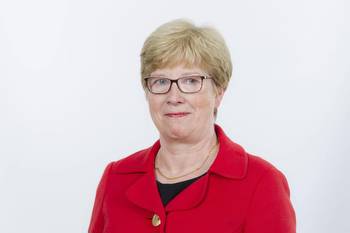UK Government Releases Long-Awaited White Paper On Gambling

The government of the United Kingdom released its long-awaited white paper on legalized gambling Thursday, containing proposals to allow financial background checks when certain loss thresholds are reached as well as limits on online casino stakes.
The paper serves as guidance to update rules and regulations for sports wagering, casino gambling, and internet casino gaming that have been in place since the passage of the 2005 Gambling Act. Its completion was delayed three years due to both the COVID-19 pandemic and multiple prime ministerial changes that resulted in various tweaks during the study’s evolution. The white paper also calls for a new statutory levy on gambling companies to fund treatment for problem gambling.
“At the heart of our Review is making sure that we have the balance right between consumer freedoms and choice on the one hand, and protection from harm on the other,” said Culture Secretary Lucy Frazer in her foreword to the paper.
“It has become clear that we must do more to protect those at risk of addiction and associated unaffordable losses. We must also pay particular attention to making sure children are protected, including as they become young adults and for the first time are able to gamble on a wide range of products. Prevention of harm will always be better than a cure, so we are determined to strengthen consumer protections and prevent exploitative practices.”
The English Premier League, the world’s most popular domestic soccer league, sought to get ahead of any potential bans or limitations by announcing a voluntary ban on front-of-jersey sponsorships by gaming companies earlier this month. The ban takes effect following the 2025-26 season to allow existing deals for the eight clubs with current sponsorships in place to wind down.
Background checks sure to cause controversy
The executive summary pointed out an estimated 300,000 people in Great Britain are experiencing “problem gambling,” which it defines as “gambling to a degree which compromises, disrupts, or damages family, personal or recreational pursuits.” It estimates another 1.8 million people are gambling “at elevated levels of risk.”
The “Call for Evidence” in building the white paper received more than 16,000 submissions from December 2020 to March 2021. The report also incorporated publications released in the interim from the Lords Select Committee, Public Health England, an independent review of regulations from BetIndex as well as input from the Gambling Commission.
The culture secretary’s suggestion to propose financial background checks at certain loss thresholds is bound to be a lightning rod for those who oppose government intrusion. Net losses exceeding £125 in a month or £500 in a year (currently, 100 U.S. dollars equal about 80 pounds) would trigger a “check of financial vulnerability indicators” that would include reviewing for County Court judgments.
A second level of examination would take place if a bettor had a net loss of £1,000 in 24 hours or £2,000 in 90 days, as higher levels of spend offer the potential to “indicate harmful binge gambling or sustained unaffordable losses.” The white paper also paid special attention to the youngest age demographic of bettors, suggesting the thresholds for the second level be cut in half for those aged 18 to 24.
Another point of contention could surround potential limits on wager stakes and pace of play for online casino gaming, intended to bring them in line with retail betting. Prior to the release of the report, there was talk of limiting stakes to a maximum of £4. Instead, the paper called for a limit between £2 and £15, though that is also subject to consultation. It again called for protections of the 18-24 age group, calling for limits at either £2 or £4 per stake, or “an approach based on individual risk.”
“We welcome acknowledgement that gambling laws are out of date and there needs to be significant reform,” said Matt Zarb-Cousin, director of the campaign group Clean Up Gambling, to the Times of London. “It’s important the government gets detail right on things like affordability checks and stake limits. The consultation needs to take all evidence into account.”
The white paper suggests that only 3% of the population who have online gambling accounts would be subject to such background checks, which would be conducted via open banking for the lower threshold and online by credit agencies for the higher ones. The paper also put the onus on operators to identify customers’ addictive behavior, saying they “will be required to respond appropriately to any identified risks on a case-by-case basis, taking into account all the information they know about the customer.” It stopped short of telling them to set a limit on how much of their income bettors spend.
The introduction of a statutory levy
The white paper also calls for the government to introduce a statutory levy on operators to combat problem gaming. The National Health Service severed ties with responsible gaming charities in February 2022, citing a conflict of interest. A specific levy amount was not recommended, with the culture secretary to “launch a consultation on the details of its design including proposals on the total amount to be raised by the levy and how it will be proportionately and fairly constructed.”
The Gambling Commission will be called upon to ensure incentives such as bonuses and free bets “are constructed in a socially responsible manner that does not exacerbate the risk of harm.” That movement has gained traction in the United States via state regulators, with operators moving to change misleading terminology such as “risk-free bets” for their incentives.
The white paper largely puts the onus on operators to make sure advertising is not geared to minors or those at risk, but it also points to the Gambling Commission and Advertising Standards Authority to take a “joint approach” in reviewing content marketing.
Better Collective, the global gaming affiliate media company that owns US Bets, released a statement Thursday saying it welcomed the report’s proposed steps as “an opportunity to drive further changes on safer gambling.” The company said the proposals would have “zero to limited” financial impact on Better Collective, however, given the company has “already taken compliance measures from the sportsbooks, and … continued focus on safer gambling.”
“[Better Collective] believes it provides an opportunity to drive further changes on safer gambling,” the statement said. “This is fully aligned with Better Collective’s mission to make sports entertainment more engaging and fun while preventing problem gambling through the education of our users.”






























